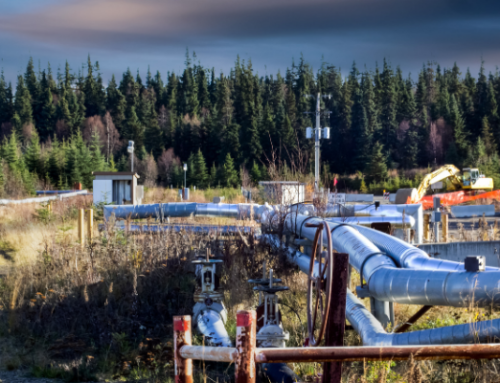Alaska’s Fair Share act will be on the ballot for the 2020 General Election as Proposition 1.
Tuesday, November 3, 2020
Polls open from 7 am. – 8pm.
Important Dates
- Deadline for voters to register to vote or update their registration. – Sunday, October 4, 2020 Are you registered? Check online.
- Absentee In Person, EV, electronic transmission and Special Needs voting begins. – Monday, October 19, 2020
- Deadline to receive absentee by electronic transmission ballot applications. – Monday, November 2, 2020
- GENERAL ELECTION DAY. Polls open from 7a.m. – 8p.m. – Tuesday, November 3, 2020
Early and Absentee Voting information
You can apply now. Visit the State of Alaska’s website for Online Absentee Ballot Application. You must have a valid Alaska Driver’s License or State ID to use this option.
For more options on early and absentee voting, visit the Alaska Division of Elections website.
On the Ballot
Ballot Summary 19OGTX
An Act changing the oil and gas production tax for certain fields, units, and
nonunitized reservoirs on the North Slope
This act would change the oil and gas production tax for areas of the North Slope where a
company produced more than 40,000 barrels of oil per day in the prior year and more
than 400 million barrels total. The new areas would be divided up based on “fields, units,
and nonunitized reservoirs” that meet the production threshold. The act does not define
these terms. For any areas that meet the production threshold, the tax would be the
greater of one of two new taxes.
(1) One tax would be a tax on the gross value at the point of production of the oil at a
rate of 10% when oil is less than $50 per-barrel. This tax would increase to a
maximum of 15% when oil is $70 per-barrel or higher. No deductions could take
the tax below the 10% to 15% floor.
(2) The other tax, termed an “additional tax,” would be based on a calculation of a
production tax value for the oil that would allow lease expenditure and
transportation cost deductions. This tax on production tax value would be
calculated based on the difference between the production tax value of the oil and
$50. The difference between the two would be multiplied by the volume of oil,
and then that amount would be multiplied by 15%. The existing per-taxable-barrel
credit would not apply. The act uses the term “additional tax” but it does not
specify what the new tax is in addition to.
The tax would be calculated for each field, unit, or nonunitized reservoir on a monthly
basis. Taxes are currently calculated on an annual basis, with monthly estimated
payments. Since these new taxes would only apply to certain areas, a taxpayer would still
have to submit annual taxes for the areas where the new taxes do not apply.
The act would also make all filings and supporting information relating to the calculation
and payment of the new taxes “a matter of public record.” This would mean the normal
Public Records Act process would apply.
Should this initiative become law?
[give_form id=”366″]



